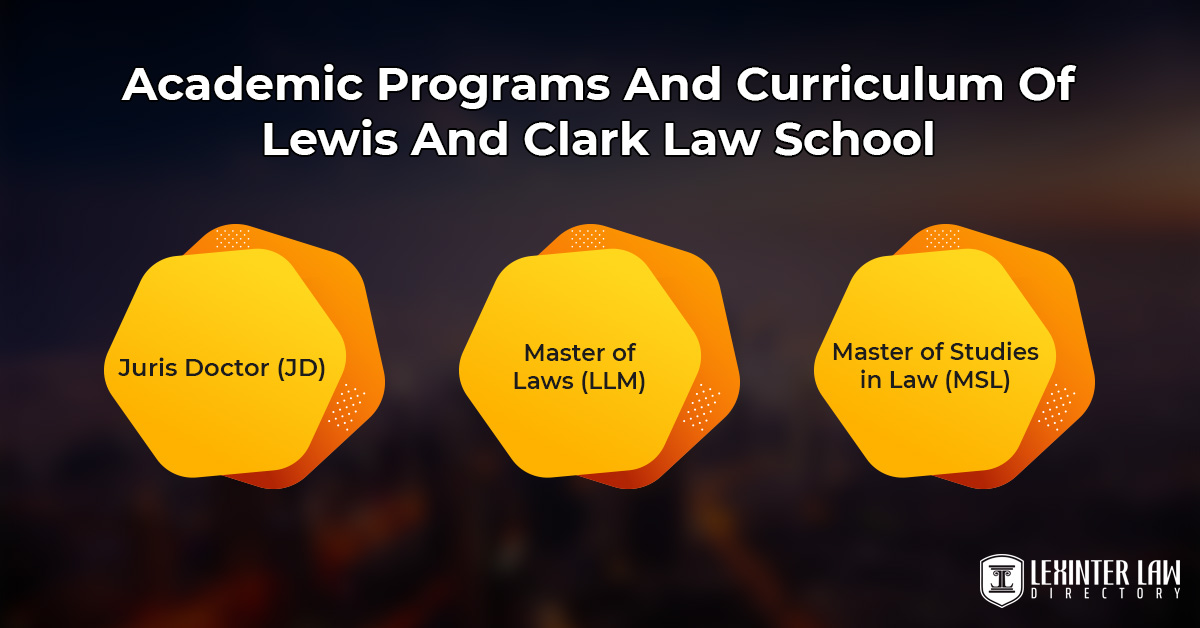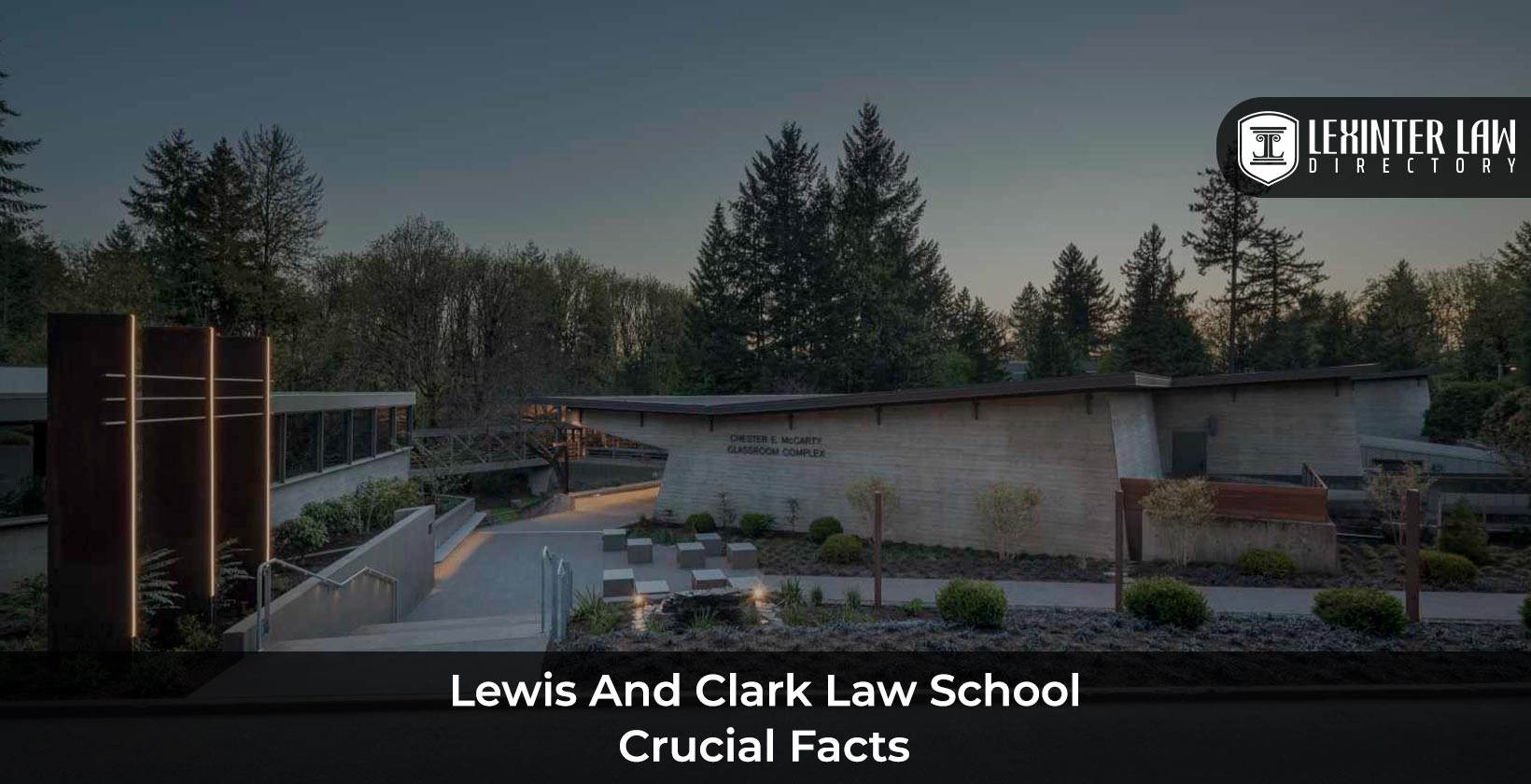Lewis And Clark Law School – Crucial Facts
Lewis and Clark Law School is a prestigious institution known for its commitment to excellence in legal education and its rich history. Located in Portland, Oregon, the law school has earned a strong reputation for producing highly skilled attorneys and offering innovative programs that prepare students for success in their legal careers.
In this article, we will explore the crucial facts, such as Lewis and Clark Law School’s ranking, admissions process, academic programs, campus facilities, faculty, alumni, and career outcomes.
Table of Contents
History Of Lewis And Clark Law School
Lewis and Clark Law School traces its roots back to 1884 when it was established as the first law school in the Pacific Northwest. Over the years, the school has witnessed significant growth and transformation. It has continuously adapted to the changing landscape of legal education, maintaining a strong commitment to producing ethical and socially responsible lawyers.
Throughout its history, Lewis and Clark Law School has achieved several notable milestones. It has been a pioneer in environmental law and natural resources law, fostering expertise in these areas, and is still considered one of the top law schools in Oregon. The law school’s dedication to public interest law and advocacy has also played a vital role in shaping its identity and impact.
University Rankings And Recognition
Lewis and Clark Law School’s ranking showcases its position among the top law schools. It has earned a solid reputation for its academic rigor, faculty expertise, and commitment to social justice. The school’s programs have garnered praise for their practical and experiential approach to legal education. In addition to these achievements, Lewis & Clark Law School is ranked No. 99 (tie) out of 195 in the U.S. News & World Report rankings of good law schools. It is also ranked No. 28 out of 67 in the Part-time Law school category.
Admissions
The admissions process at Lewis and Clark Law School is highly competitive, attracting talented and motivated individuals from around the world. Applicants are evaluated based on multiple criteria, including a median LSAT score of 160 and a median undergraduate GPA of 3.58. The Lewis and Clark Law School acceptance rate for the 2023-2024 school year was 63.3%, highlighting the rigorous nature of the selection process.
In addition to these academic factors, applicants are required to submit two recommendation letters, a personal statement, a resume, and a character and fitness statement. An optional diversity statement is also available for applicants to showcase their unique perspectives. While the acceptance rate may vary, prospective students should aim for a strong GPA, a competitive LSAT score, and a compelling application that reflects their passion for law and dedication to their academic and professional goals. The law school also provides various financial aid opportunities, scholarships, and tuition assistance programs to support students in pursuing their legal education.
Academic Programs And Curriculum

Lewis & Clark Law School offers a Juris Doctor (JD) program with full-time and part-time options. The first-year curriculum includes foundational courses such as Civil Procedure, Contracts, and Constitutional Law. In addition to the JD, the top-tier law school provides specialized degrees, including a Master of Laws (LLM) in Environmental, Natural Resources, and Energy Law, and a Master of Studies in Law (MSL) designed for professionals who seek legal knowledge without becoming practicing attorneys.
The law school is one of the best law schools, nationally recognized for its environmental law focus and innovative curriculum. Students gain real-world experience through legal clinics, externships, and research projects. Emphasis on interdisciplinary learning and practical training ensures graduates are equipped to handle complex legal challenges. Programs are flexible, with some offered online or through distance learning, supporting career advancement in both legal and policy-oriented fields.
Campus And Facilities
Situated in a beautiful natural setting in Southwest Portland, Lewis and Clark Law School provides an inspiring environment for legal studies. The campus features state-of-the-art facilities, including modern classrooms, moot courtrooms, and a comprehensive law library with an extensive collection of legal resources.
This reputed law school’s location in the Pacific Northwest offers students a unique advantage. The region’s vibrant legal community, proximity to government agencies, nonprofit organizations, and a diverse range of law firms create ample opportunities for internships, networking, and career development.
You can also check out SJ Quinney College Of Law.
Faculty And Research
This highly-ranked law School boasts a distinguished faculty comprising accomplished scholars, practitioners, and jurists. The faculty members bring a wealth of expertise and real-world experience to the classroom, ensuring that students receive a well-rounded legal education. Notable faculty include Professor Michael Blumm, a leading authority in environmental and natural resources law; Professor Erica Lyman, an expert in international wildlife law and director of the Global Law Alliance for Animals and the Environment; and Carma Corcoran, director of the Indian Law Program, specializing in Native American legal issues.
The law school actively encourages research and scholarship among its faculty and students. It supports a wide range of research initiatives, centers, and programs that delve into various legal disciplines, including environmental law, animal law, and Indian law. Students have the opportunity to collaborate with faculty on research projects and contribute to the advancement of legal knowledge.
Alumni And Career Outcomes
Lewis and Clark Law School has a vast network of accomplished alumni who have made significant contributions to the legal profession and society. Notable alumni include judges, partners in prestigious law firms, public interest advocates, government officials, and leaders in various fields.
The law school’s emphasis on practical skills and experiential learning translates into excellent career outcomes for its graduates. In 2023, over 90% of Lewis & Clark Law School graduates were employed within 10 months of graduation. These graduates secured a wide range of employment opportunities, with 42.7% finding positions in law firms, 29.8% in government or public interest roles, and 10.1% in judicial clerkships.
Frequently Asked Questions About Lewis And Clark Law School
1. Is Lewis And Clark A Good Law School?
Yes, Lewis and Clark School of Law is widely regarded as a top-tier law school with a strong reputation for producing skilled attorneys. Its commitment to academic excellence, innovative programs, and dedication to social justice make it an excellent choice for prospective law students. Additionally, understanding the Lewis and Clark Law School acceptance rate can provide valuable insights into the competitiveness of the admissions process, allowing prospective students to gauge their chances of securing a spot at this prestigious institution.
2. How Hard Is It To Get Into Lewis And Clark Law School?
Admission to Lewis and Clark Law School is competitive, and the process is rigorous. The law school receives a large number of applications from highly qualified candidates. While the exact difficulty level can vary, prospective students are encouraged to showcase their academic achievements, strong LSAT scores, and a genuine passion for the law to enhance their chances of admission. The Lewis and Clark Law School acceptance rate provides valuable insight into the competitiveness of the admissions process, underlining the importance of preparing a strong application that highlights one’s qualifications and commitment to the study of law.
3. What GPA Do You Need To Get Into Lewis And Clark Law School?
Applicants should aim for a competitive undergraduate GPA to gain admission to Lewis & Clark Law School. The median GPA for admitted students is 3.58, with the middle 50% range falling between 3.28 and 3.79. While a GPA around 3.50 is generally considered strong, the admissions committee also considers other factors such as LSAT scores, personal statements, and letters of recommendation when evaluating applicants.
4. How Do You Get Into Lewis And Clark Law School?
To gain admission to Lewis and Clark Law School, prospective students must complete the application process, which typically includes submitting academic transcripts, LSAT scores, letters of recommendation, a personal statement, and a resume. It is crucial to review the admissions requirements and submit a well-prepared application that reflects one’s academic achievements, personal experiences, and commitment to the study of law.
Conclusion
Lewis and Clark Law School stands out as a premier institution for legal education, offering a rigorous and comprehensive curriculum, distinguished faculty, and a supportive learning environment. Prospective law students considering Lewis and Clark Law School can benefit from its exceptional academic programs, vibrant legal community, and extensive alumni network. The law school’s emphasis on experiential learning, combined with its historical legacy and commitment to justice, makes it an attractive choice for those aspiring to make a difference in the legal field.
The impressive Lewis and Clark Law School ranking further highlights the school’s standing among top institutions, reaffirming its reputation for academic excellence and producing successful attorneys.
You can also read a related blog on Insights Of University Of Arizona Law School.

